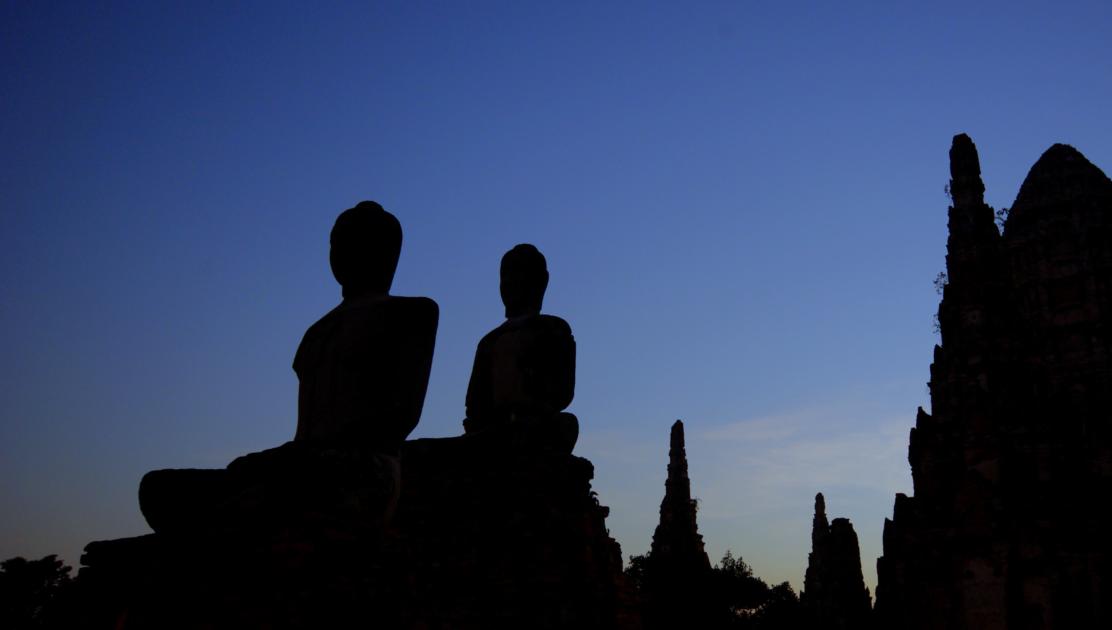Good Friendship Is the Entire Spiritual Life
Dharma Teacher Josh Korda Reflects on What the Buddha Said about Social Connection
By The Buddha and Josh KordaFrom The Buddha’s Teachings on Social and Communal Harmony:
Venerable Ānanda approached the Blessed One, paid homage to him, sat down to one side, and said: “Bhante, this is half of the spiritual life, that is, good friendship, good companionship, good comradeship.”
“Not so, Ānanda! Not so, Ānanda! This is the entire spiritual life, Ānanda, that is, good friendship, good companionship, good comradeship. When a monk has a good friend, a good companion, a good comrade, it is to be expected that he will develop and cultivate the noble eightfold path.
And how, Ānanda, does a monk with a good friend develop and cultivate the noble eightfold path? Here, a monk develops right view, which is based upon seclusion, dispassion, and cessation, maturing in release. He develops right intention… right speech… right action… right livelihood… right effort… right mindfulness… right concentration, which is based upon seclusion, dispassion, and cessation, maturing in release. It is in this way, Ānanda, that a monk with a good friend develops and cultivates the noble eightfold path.
By the following method too, Ānanda, it may be understood how the entire spiritual life is good friendship, good companionship, good comradeship: by relying upon me as a good friend, beings subject to birth are freed from birth; beings subject to old age are freed from old age; beings subject to death are freed from death; beings subject to sorrow, lamentation, pain, dejection, and despair are freed from sorrow, lamentation, pain, dejection, and despair. By this method too, Ānanda, it may be understood how the entire spiritual life is good friendship, good companionship, good comradeship.”
(Samyutta Nikaya 45:2, Connected Discourses of the Buddha 1524-25)
Josh Korda responds:
In this famous sutta, the Buddha is returning to a dominant theme found throughout the Pali Canon: Human beings are social animals. Our greatest survival tool isn’t found in our physical attributes—we don’t outrun predators, we don’t have shells to offer shelter, no claws for fighting, no wings for flight, and so on—but we have survived and thrived as a species due to our remarkable abilities to bond and maintain tribal relationships. Throughout our species’ evolution, connection with others has led to life and survival; disconnection leads to death.
At another point in the Pali Canon, the Buddha said that we literally become the people we associate with: “If you wrap rotting fish in a blade of grass it eventually makes the grass smelly: likewise you will become a fool if you associate with the foolish.”
Given the importance that bonding has played in our survival, it is not surprising that the brain is a social organ, constructed through our interactions with others. Regions in the brain’s right hemisphere activate powerful emotional responses, compelling us to maintain our social ties at all costs. We feel sad when we are disconnected from someone we depend upon, shame when we act in ways that would lead to social rejection, and joyous when reunited with attachment figures.
As relationships are of primary import, we start learning how to connect from birth. Our personalities are essentially survival strategies, the underlying emotional beliefs that govern our behaviors. We may be willing to stay calm in tense interpersonal situations, or feel impelled to run away from conflict, or defuse other’s anger, all depending on the nature of our early relationships. How we think and act today was fundamentally informed by our original caregiver’s demands; by adult life these beliefs are deeply embedded and maintained unconsciously.
All of which brings us to sutta at hand, in which the Buddha informs us that all of the spiritual path is “good friendship, good companionship, good comradeship” founded on kalyāṇamitta, or wise, empathetic friendships. If we are to develop the tools lauded in the dharma—empathy, compassion, calm reflection, embodied awareness, and so on—we need to undo the impulses compelling us to fight, flee, shut down, or fall into spirals of self-loathing.
Despite the culturally dominant images of spiritual practice occurring in solitude, all the meditation in the world can’t meaningfully heal the maladaptive coping strategies embedded in toxic relationships or provide the support necessary to flourish in our spiritual practice. Only connecting with those that are caring and supportive can reach the unconsciously held beliefs that steer us behaviorally. To develop spiritually, we need to heal with others.
Josh Korda has been the teacher at New York Dharma Punx since 2005. He teaches frequently at the Garrison Institute and his next retreat is “Self-Therapy: Befriending and Healing the Wounds of the Emotional Mind” on September 21-24, 2017, which he is co-teaching with Jessica Morey.
The Buddha’s teaching above is excerpted from The Buddha’s Teachings on Social and Communal Harmony: An Anthology of Discourses from the Pali Canon edited and introduced by Bhikkhu Bodhi. Reprinted with permission from Wisdom Publications.
Photo courtesy of Adam Baker on Flickr
